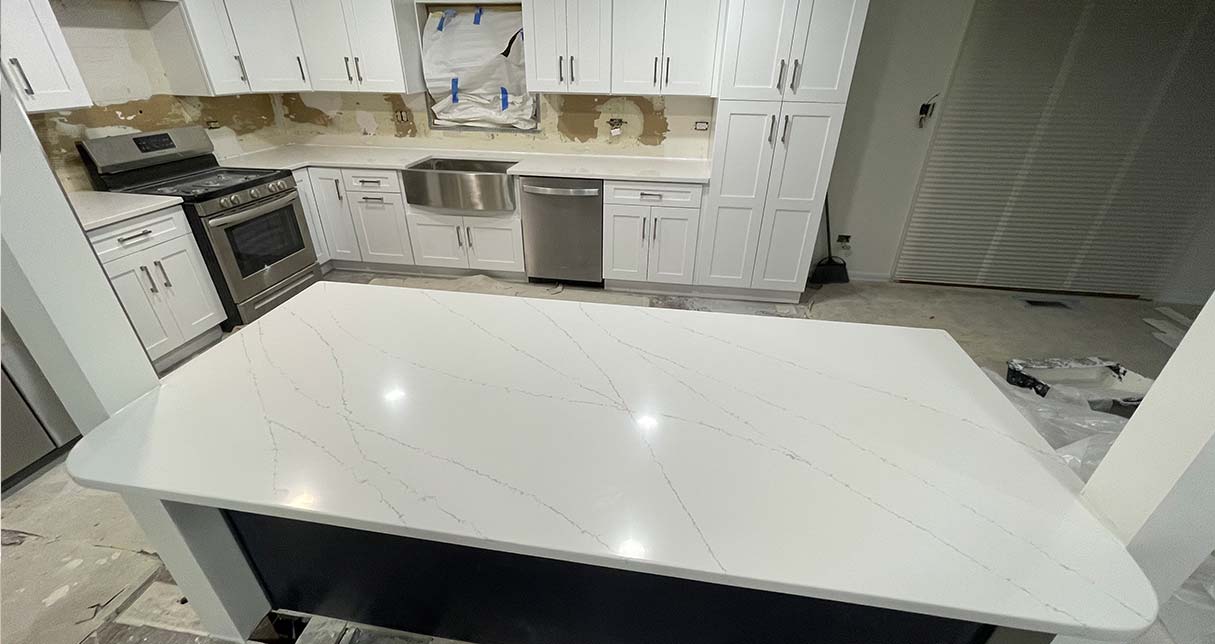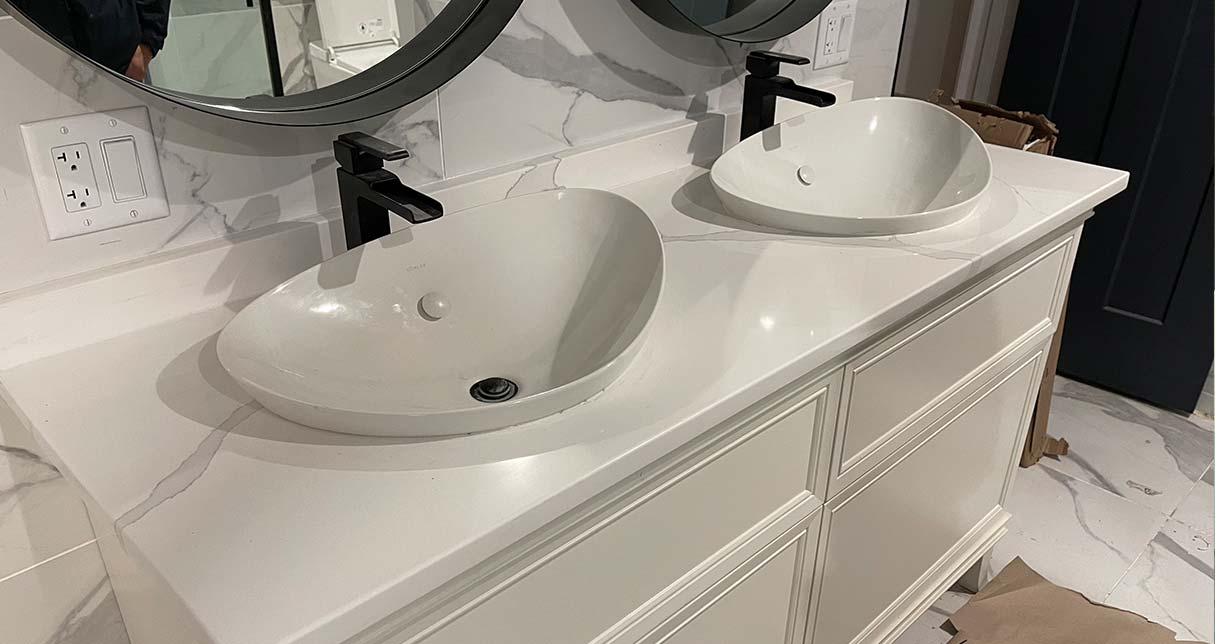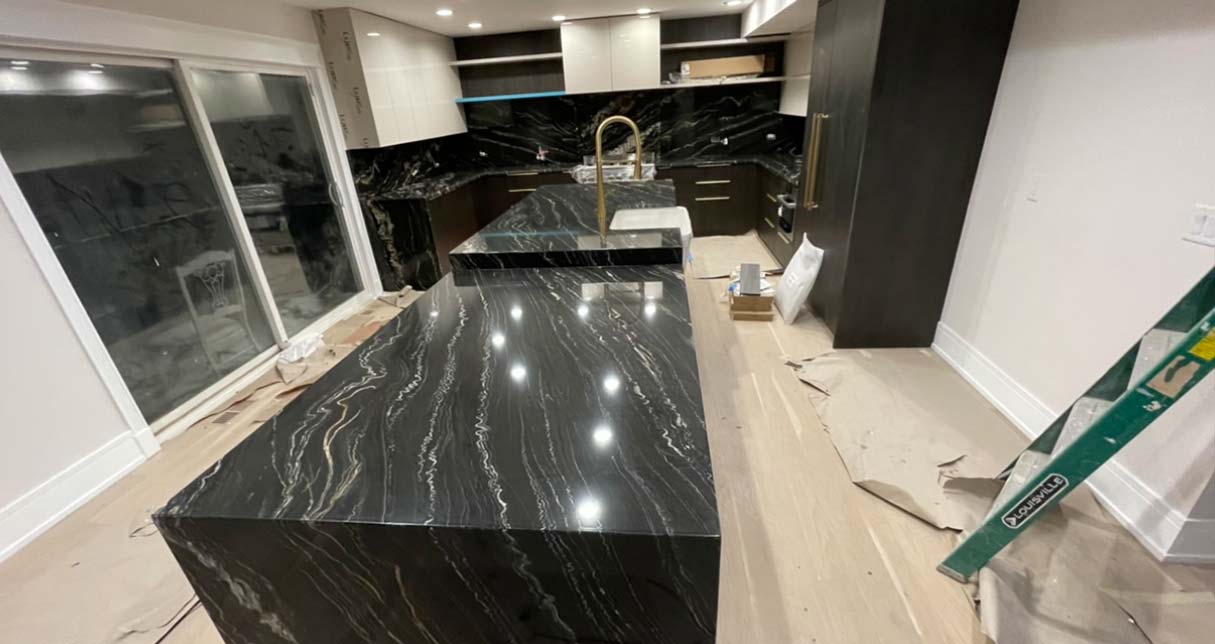
Granite countertops are highly sought-after due to their elegance and durability. Quartz countertops, also known as engineered stone countertops, are constructed of materials that are completely different from one another but have a similar appearance and usefulness. Find out which of the Granite vs. Quartz Countertops is superior.
It can be challenging to choose between granite and quartz for the ideal countertop for your kitchen or bathroom. What kind of countertop to install is one of the most crucial choices you’ll have to make. The most preferred countertop materials among homeowners are granite and quartz. Quartz is a manufactured stone made from natural quartz and other components, whereas granite is a natural stone with distinctive variances and designs. Both granite and quartz have advantages and disadvantages, so it’s crucial to take your demands into account before choosing one.
Introduction to Granite and Quartz Countertops
Two of the most widely used materials for countertops are granite and quartz. Both have many advantages, which make them ideal options for kitchens and bathrooms. You can also utilize them to create a sophisticated living room interior design. Because that granite is a natural substance, it’s a fantastic option for anyone wishing to build a tiny bedroom or worktops with a distinctive and natural appearance. Moreover, it is incredibly resilient and can withstand heat, stains, and scratches. While quartz is formed from a blend of natural quartz and other elements, it is a manufactured product. It is also more heat-resistant than granite, which makes it a fantastic option for kitchens where hot pots and pans are frequently used.
Granite and quartz countertops have different characteristics.
- Granite is a completely natural substance. It is porous and stain-prone since it is composed of minerals including mica, quartz, and feldspar. The engineered material quartz, on the other hand, is made of ground quartz and resin. Because of its increased toughness and lack of pores, it is less likely to become stained than granite.
- Granite is more heat-resistant than quartz, making it a better choice for situations where hot objects might be present, such a stovetop. Quartz should not be utilized in regions where hot objects may come in contact with it since it is more prone to heat damage.
- Quartz does not require sealing, whereas granite must in order to protect it from stains and damage. This indicates that quartz is less likely to become stained and is also easier to keep and clean.
- In terms of price, granite is typically less expensive than quartz. Granite is a naturally occurring substance that is easily accessible, but quartz is a manufactured substance that costs more.
- Quartz is only available in a few solid colors, whereas granite comes in a huge variety of colours and patterns. This indicates that granite is more adaptable than quartz and can be used to produce a more distinctive look.
- Finally, granite requires extra support during installation because it is a heavier material than quartz. Quartz is lighter than other materials, so it needs less support and is simpler to install for a straightforward bedroom design.














































